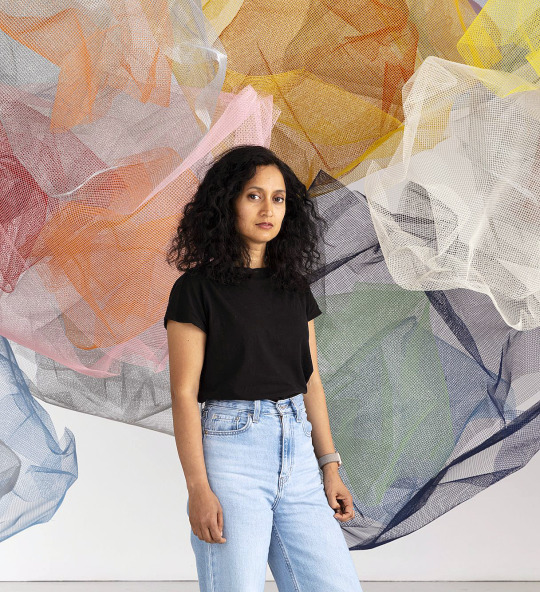#Bangladeshi Artist
Explore tagged Tumblr posts
Text
Soo prettyyyyyyyyyyy
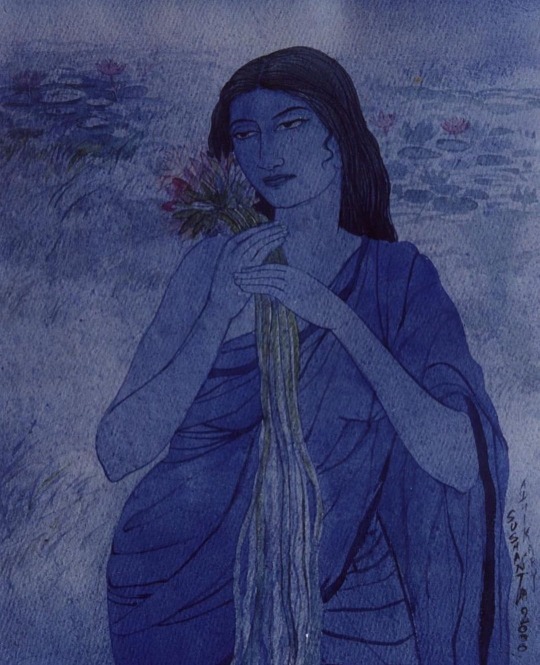
Sushanta Kumar Adhikary. Untitled, 2000.
#sushanta kumar adhikary#art#paintings#blue art#south asian art#south asian artist#bangladeshi art#bangladeshi artist#bangladesh#bangla tag#desi tag#desi art#desi tumblr#desiblr
372 notes
·
View notes
Text
I currently have 700+ followers. And I will urge all of you to read about what is happening in Bangladesh. What has happened in Bangladesh. I am adding irrelevant tags of the fandoms I follow to garner more attention. I apologize in advance.
The government of Bangladesh killed pressumably 950+ people, innocent people, students, all because they demanded a system that will give them government jobs based on merit rather than quota. To suppress the students Sheikh Hasina and its government imposed 5 days of total internet blackout. While imposing this blackout they killed off anyone of the streets. They killed people from helicopters by shooting and throwing grenades. Many kids died in their own homes as the bullet shot them through their window.
Sheikh Hasina and its police took away all the dead bodies and the death registries from the hospital. The official death toll is 200. But various journalistic and medical staff sources confirm the death toll is over 950 in Dhaka alone.
That monster of a PM didn't acknowledge the death of the students. Instead she is crying over the infrastructure vandalism. I request you,rise up and speak out about this. Educate yourself and let other people know. The internet blackout have suppressed the truth at large. The Bangladeshi people are in deep surveillance and the government have made 2000+ arrests on false charges just because they have shared the Information. There is mass fear mongering. I know most of you people are not Bangladeshis and that's why you need to help us and speak up about it. Join your local protests, share the news in your social media, twitter Instagram. I beg you, don't let my people's murderers get away with it. Don't let my people's death be forgotten.
I am attaching some links for you to understand the horror of it all.
This Facebook page Bringing justice to you has documented all the horrors and the massacres that happened on Bangladeshi people. TW : all kinds of blood, gore, death bodies, every single horrible things imaginable but shows what went down.
This ig page is also another page that brings you the horror stories.
https://www.instagram.com/thebangladeshivoice?igsh=YXBpdzQyem54cmZj
Al-Jazeera has been a very credible news source while the Bangladesh was under blackout. They have made several segments. I am attaching the latest one.
youtube
UN Human Rights have called out Bangladesh for explanation regarding the crackdown
instagram
Amnesty International's report of Bangladesh government using lethal weapon against its people and mass murder
There are many more contents, proof and videos to show you the horrors that was unfolded in the crackdown. Sheikh Hasina killed her people like insects and violated every single human rights imaginable. Please share these. Support us. Help us. I beg you all.
#house of the dragon#bangladesh#save bangladeshi students#save palestine#palestine#step down sheikh hasina#al jazeera#Youtube#Instagram#artists on tumblr#photography#kamala harris
8K notes
·
View notes
Text
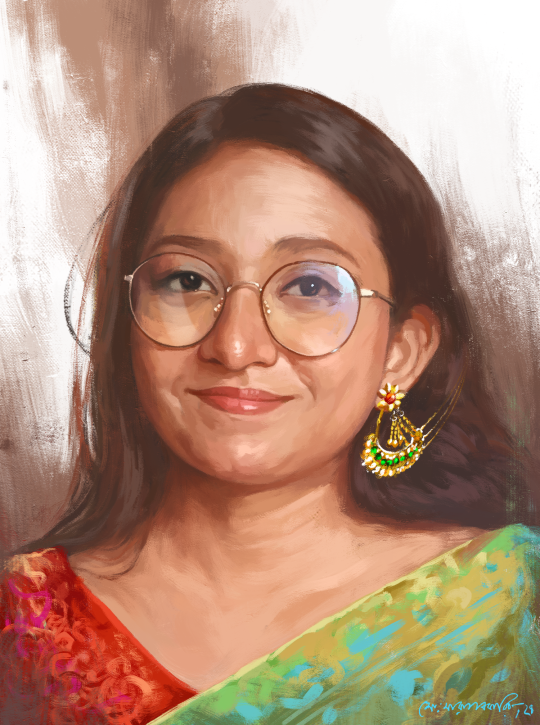
Portrait of Umma Habiba Meem
#Marzan#Marjan#Marzan Kabir#Marjan Kabir#Painting#Digital#Digital Painting#Meem#Umma Habiba Meem#Bangladeshi Artist#Bangladeshi Painter
1 note
·
View note
Text

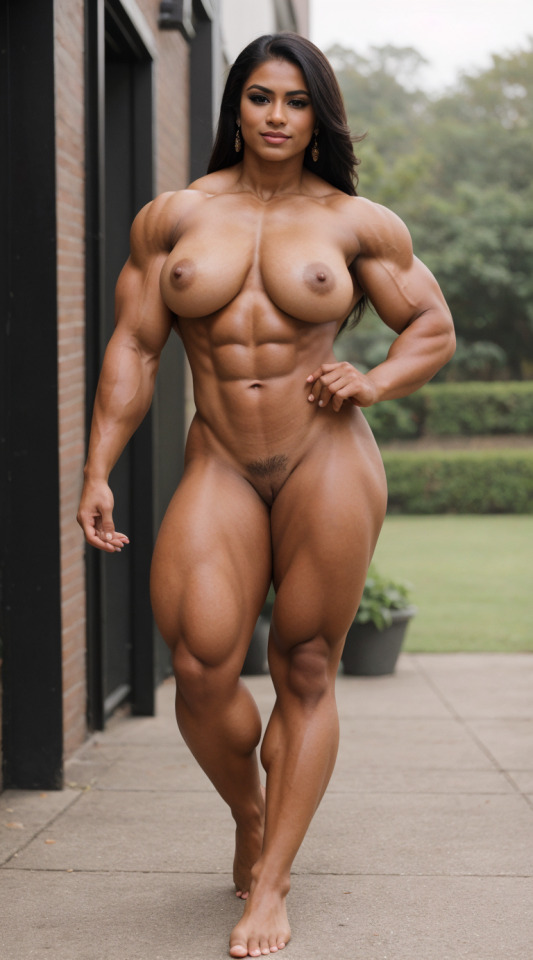



Bengali Muscle Woman
825 notes
·
View notes
Text
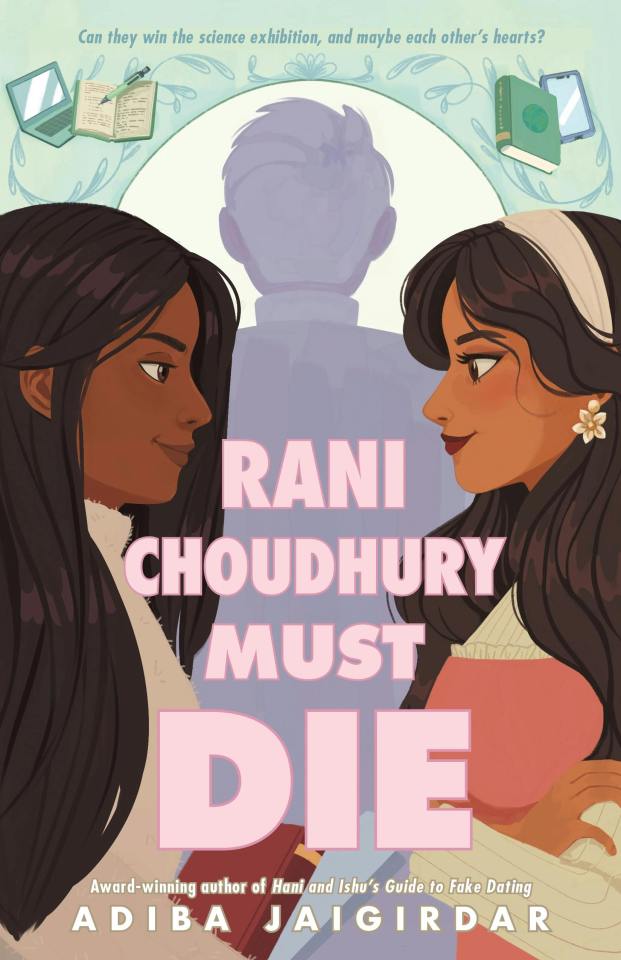
2024 reads / storygraph
Rani Choudhury Must Die
YA contemporary romance
two ex-best-friends turned rivals due to family expectations and competing in science competitions realise they’re dating the same guy
when one gets into the european young scientist exhibition, they decide to team up and create a new project - an app to expose cheaters, planning to expose him in their final presentation
but the more time they spend together they remember why they were friends, and maybe start to get crushes on each other…
Bangladeshi-Irish diaspora experiences & messy teenagers
#Rani Choudhury Must Die#adiba jaigirdar#aroaessidhe 2024 reads#sapphic books#this is okay! unfortunately a few things annoyed me……. listen.#after 4 years of design school nothing makes me immediately uninterested in someone’s ideas more than Lets Design An App For It#I also read this RIGHT after going to my uni’s graduate exhibition where there’s always a few of those#but I spent most of the book being like holy shit the ethics????#making an app to detect cheating that goes through social media data & you put on people’s phones without consent…….#the ethical issues DO get discussed closer to the end - but like they pitched it to their teachers in the beginning#and I’d expect it to be brought up then haha. however I can’t say that it’s not realistic for teens to come up with something like that#Meghna was definitely a frustrating character at times - but also teenagers are like that. it’s fine.#I liked the slow mending of their friendship and the romance was sweet in the end (if very much just-in-the-end)#as well as the exploration of diaspora experiences and family expectations.#I did find their original science projects so much more interesting than the silly cheating app.#and hey it seems like they've finally managed to find some bangladeshi-irish audiobook narrators! i remember for her prev books they#had to choose one or the other#oh the other thing is that meghna is supposedly an artist but like. didn't feel like an artist? yknow? idk
22 notes
·
View notes
Text

suffering from genocide
#digital art#student protests#bangla blockade#quota movement#bangladesh#save bangladeshi students#digital illustration#artists on tumblr#krita
17 notes
·
View notes
Text

" রাশিয়ায় ছিল জেনারেল উইনটার, আমাদের জেনারেল মুনসুন"
#মিন্টুর ফেলে যাওয়া নাকি রেখে যাওয়া রেইনকোটে ঢোকার পর তার পা শিরশির করছে#আর এক মুহূর্ত দাঁড়িয়ে থাকা যাচ্ছে না।#bangladesh#bangladesh protests#bangla blockade#students of bangladesh#save bangladeshi students#save bangladesh#artists of tumblr#student protests#protests#quota reform protest#july 2024#august#bloodshed
8 notes
·
View notes
Text


My two ocs as Mulder n Scully cuz I loveeeeejehdjnfndns x files
#artists on tumblr#my art#my post#traditional art#dana scully#fox mulder#x files#x files fanart#ocs#my ocs#oc art#bangladeshi oc#indian oc#japanese oc
4 notes
·
View notes
Text

“The Night Before The Wedding.” (Mehndi Night) 2024.
59.4cm x 84.1cm
Drawn in Polychromo Coloured pencils.
Finally after 2 years I’ve completed this portrait! This is a part of my protect titled “The Ones That Came Before Me.” This portrait is of my mum during her wedding season. This project is about documenting the life of my family (my parents, grandparents, uncles, aunts etc). It’s been a rollercoaster of emotions throughout this journey of two years. So much of my personal life felt like it wasn’t moving in the direction I intended. With so much new uncertainty & society pressures & what’s happening in Palestine, it all was taking an effect to the duration to complete it, however I remained resilient & managed to see it through to its completion. Can’t wait for you to see this in person at one of my art exhibitions hopefully this year!!!
#art #artist #drawing #portrait #familyportrait #artbyresistant #bengali #bangladeshi
3 notes
·
View notes
Text
BEAUTIFUL!!!!!!!!!!!!!!!!!!!

bangladeshi hatsune miku 🇧🇩
83K notes
·
View notes
Text
Bangladeshi students are again starting their protests from today 29.07.24. This time they want public apology and resignation from the government for the murder of 1000+ people. They are ready for revolution and they are ready for fight. 9000+ unlawful arrests have been made and students were picked off from their homes just for being students. I will beg all of you to go to twitter tonight spread the news. Keep making as much as noise you can about Bangladesh and Bangladeshi students so that Sheikh Hasina's armed forces can't shoot one single bullet in any of them. Bangladeshi students are getting ready for battle in the morning and you all need to be their shields. Post, repost, and spread the word to all the international media. We are going to keep these young students safe this time. ✊🏾
P.S : Sorry for the irrelevant tags. It's life and death now.

#iwtv#genshin impact#artists on tumblr#911 abc#deadpool and wolverine#save palestine#save bangladeshi students#bangladesh#olympics
19 notes
·
View notes
Text
The son of Bangladeshi immigrants, Zaman was first seduced by the theatre’s siren song as a teenager. “I know exactly when it happened. I was 15 or 16, and my school took a group of us to a show in Newcastle, which was an international telling of A Midsummer Night's Dream. It was an RSC production, with an entire company of actors from the Asian continent, across East and South Asia, all speaking different languages. The whole play was done in every language they spoke but English, and it was so beautiful and physical. I was blown away by it, and seeing people who looked like me on stage.”
#shakespeare#william shakespeare#midsummer#a midsummer night's dream#assad zaman#interview with the vampire#rsc#royal shakespeare company#shakespeare in translation
80 notes
·
View notes
Note
Do you have any recs for books about muslim queer people? especially graphic novels?
I have some fiction recommendations, as I don't usually read too much non-fiction:
[ NOTE: Yes, I am aware that all the gay books listed below are depressing as fuck while the sapphic books are fluff or romance. Take it up with the authors. ]
MLM Muslim Books
Darius The Great is Not Okay by Adib Khorram: an Iranian-American boy with clinical depression makes a best friend for life, reconnects with his grandparents, and repairs his relationship with his father on a trip to Yazd.
Guapa by Saleem Haddad: Rasa, a gay man working as a translator and living in an unnamed Arab country, tries to carve out a life for himself in the midst of political and social upheaval, in this novel set over 24 hours.
God in Pink by Hasan Namir: set in war-torn Iraq in 2003 and follows a young gay Iraqi man struggling to find a balance between his sexuality, religion, and culture by seeking guidance from a sheikh.
The Carpet Weaver by Nemat Sadat: a tragic love story between two gay youths in 1970s Afghanistan, who must keep their relationship a secret due to the fears of societal ostracisation, violence and even the impending threat of a war.
WLW Muslim Books
The Henna Wars by Adiba Jaigirdar: Nishat, a young Bangladeshi-Irish lesbian has to fight against racism, homophobia and cultural appropriation when she starts a henna business at her Catholic school, and falls for a rival classmate.
Bright Lines by Tanaïs: a vibrant debut novel set in Brooklyn and Bangladesh, which follows three young women and a diasporic Bengali family struggling to make peace with secrets and their past.
The Love and Lies of Rukhsana Ali by Sabina Khan: a young Bengali-American girl's conservative Muslim parents forcibly send her off to Bangladesh for marriage, after they catch her kissing her girlfriend; once there, she finds solace and strength through reading her grandmother’s old diary.
Hani and Ishu's Guide to Fake Dating by Adiba Jaigirdar: a grumpy-sunshine fake dating romance between two young Bengali-Irish sapphic girls, one Muslim and one Hindu, each having her own troubled relationships with friends, religion and family.
The Quilt and Other Stories by Ismat Chughtai: a collection that includes the titular erotic lesbian love story between a Begum and her maidservant, their sexual trysts unknowingly observed by an innocent little girl– this story revolutionized Indian queer literature and lesbian history.
Radiant Fugitives by Nawaaz Ahmed: a Muslim-Indian lesbian political activist working in the early days of Obama's presidency, attempts to reconnect with her mother and sister, years after her father abandoned her because of her sexuality.
Roses in the Mouth of a Lion by Bushra Rehman: Razia, a Pakistani American, grows up across cultures in 1980s New York, confronting stereotypes, dealing with American society, practicing her Muslim faith, and falling in love with a female classmate.
Tell me How You Really Feel by Aminah Mae Safi: a YA enemies-to-lovers romantic comedy about a popular Persian-Indian Muslim cheerleader and a Jewish wannabe director who end up working together on a project, despite their mutual hatred.
Soft on Soft by Em Ali: a very fluffy and low-angst romance between two plus size women- a Persian makeup artist/beauty influencer with anxiety and a Black actress.
MEMOIRS
My Life as A Unicorn by Amrou Al-Kadhi: from a god-fearing British-Iraqi Muslim boy enraptured with their mother, to a vocal, queer drag queen estranged from their family, this is a memoir about the author's fight to be true to themself.
Hijab Butch Blues by Lamya H: a nonbinary butch Muslim author's powerful, religious memoir spanning from her childhood, to their arrival in the United States for college through early-adult life in New York City, describing how she found queer affirmation in the Quran and Islam.
A Dutiful Boy by Mohsin Zaidi: a poignant coming of age memoir by a British-Muslim gay author, about growing up queer in a conservative household, amidst poverty-stricken east London.
We Have Always Been Here by Samra Habib: a memoir about feminism and LGBTQ community by a nonbinary queer Ahmadi Muslim author, whose family sought asylum in Canada after fleeing Pakistan's political turmoil.
In Sensorium (Notes for My People) by Tanaïs: this memoir interlaces memories of childhood in the South, Midwest US and New York with a universe of memories and scent—inspired by the author's own perfume maker background– while offering an alternate history of South Asia from a Bangladeshi Muslim femme perspective.
I have not read some of these, and am not Muslim, so I cannot testify to their "correctness" of Islamic representation. Unfortunately I do not have any graphic novels that deal with queerness and Islam. Perhaps my followers can help.
#mimiwrites#book recs#book recommendations#books#literature#queer#lgbtq#muslim#desi#desiblr#india#Pakistan#religion#lesbian#gay#sapphic books#queer books#diverse books#litblr#memoirs#history#fiction#romance#long post //#answered ask#weaponizedalibi#terfs dni
241 notes
·
View notes
Text
List of notable Muslim allies of queer, trans or LGBTQI+ folks
Imam al-Nawawi – ally of Mukhannathun or trans femmes, female transsexuals and effeminate queers
Saint Khawaja Gharib Nawaz – ally and patron of Hijra and Khawaja Sara communities
Saint Baba Bulleh Shah – ally and patron of Muslim Khawaja Sira communities
Saint Lal Shabaz Qalander – patron of Khawaja Sira & trans Muslim communities
Abu Muhammad Ali Ibn Hazm – ally of queer Muslims
Ayatollah Ruhollah Khomeini - ally of transgender & intersex folks
Sheikh Muhammad Sayyid Tantawi - ally of trans & intersex folks
Amina Wadud - ally of LGBTQI+ Muslims, founder of Queer Islamic Studies and Theology (QIST)
Gulbanu Khaki/Gul Khaki - ally of LGBTQ+ muslims, mother of a gay imam
Khaled Hosseini - ally of transgender & proud muslim dad of a transgender child
Siddika Jessa - LGBTQI+ activist, mother of a gay muslim son
Ani Zonneveld
Pamela Taylor
Laura Silver
Omid Safi
Kecia Ali
Ghazala Anwar
Ensaf Haider
Saleemah Abdul-Ghafur
Farid Esack
Zaitun Mohamed Kasim/Toni Mohamed Kasim
Anne-Sophie Monsinay
Imam Kahina Bahloul
Imam Philip Tuley
Scott Siraj al-Haqq Kugle
Farouk Peru
Abdennur Prado
Ingrid Mattson
Hasan Minhaj
Reza Aslan
Alia Bano
Zaid Ibrahim
Azahn Munas
Ayman Fadel
Inayat Bunglawala
Shahla Khan Salter
Nakia Jackson
Jeewan Chanicka
Taj Hargey
Michael Muhammad Knight
Maajid Nawaz
Shehnilla Mohamed
Mustafa Akyol
Writer Sabina Khan
Activist Jerin Arifa
Urvah Khan - LGBTQI+ ally, co-founder of Muslim Pride Toronto
Imam Khaleel Mohammed
Imam Tareq Oubrou
Imam Dr Rashied Omar
Shaykha Fariha Fatima al-Jerrahi
Shaykha Amina Teslima al-Jerrahi
Scholar Hussein Abdullatif
Maysoun Douas
Fátima Taleb
Aydan Özoğuz
Omid Nouripour
Özcan Mutlu
Ekin Deligöz
Cem Özdemir
Artist Nadia Khan
Marina Mahathir
Siti Musdah Mulia
Karima Bennoune
Grand Mufti Sheikh Assadullah Mwale
Muneeb Qadir
Dr. Amir Hussein
Dr. Sana Yasir
Dr. Sali Berisha
Dr. Omer Adil
Hashim Thaçi
Albin Kurti
Supermodel Nadia Hussain
Irish-Bangladeshi singer Joy Elizabeth Akther Crookes
Salma Hayek
Fouad Yammine
Pakistani Director Asim Abbasi
Pakistani Actress Nadia Jamil
Indian Actor Saqib Saleem
Indian Actor Irrfan Khan
Indian Actor Aamir Khan
Indian Actress Zeenat Khan/Aman
Indian Actress Shabana Azmi
Indian Actress Saba Azad
Indian Actress Sara Ali Khan
Indian Actress Huma Qureshi
Indian Director Zoya Khan
Pakistani Actor Furqan Qureshi
Bangladeshi Actress Azmeri Haque Badhon
Actor Muneeb Butt
Indian Actress Zareen Khan
Indian Actor Imran khan
Pakistani Actress Mehar Bano
Filmmaker Faruk Kabir
Filmmaker Saim Sadiq
Filmmaker Sharmeen Obaid-Chinoy
Riz Ahmed
Zayn Malik
Sally El-Hosaini
Malala Yousefzai
Hafid Abbas
Hojatoleslam Kariminia
Singer Sherina Munaf
Writer Alifa Rifaat
Writer Ismat Chughtai
Activist Nida Mushtaq
Activist Aan Anshori
Abdul Muiz Ghazali
Kyai Hussein Muhammad
Marzuki Wahid
Gigi Hadid
President Abdurrahman Wahid (Gus Dur) - ally of waria or transgender females
Sinta Nuriyah - ally of trans & waria folks
Politician Keith Ellison
Mayor Sadiq Khan
Politician Ilhan Omar
Politician Rashida Tlaib
Politician Rushanara Ali
Politician Nabilah Islam
Politician Shahana Hanif
Politician Rama Yade
Politician Humza Yousaf
Politician Zarah Sultana
UK Sectratary General Zara Mohammed
Turkish politician Kemal Kılıçdaroğlu
Bengali Influencer Sobia Ameen
Shaykh Michael Mumisa
Muhammad Musharraf Hossain Bhuiyan
Mufti Abdur Rahman Azad - Hijra ally
Sheikh Hasina - Ally of hijra-intersex communities
Lawyer Iftikhar Chaudhry
Amani Al-Khatahtbeh
Professor Amel Grami
Professor Muhammad Aslam Khaki
Mohammad Hashim Kamali
Mehrdad Alipour
Lawyer Imaan Mazari/Iman Mazari
Shireen Mazari
Syed Murad Ali Shah
41 notes
·
View notes
Text
Writeblr intro (open to mutuals)
Hello again @ writeblr...! I'm Naila--Bangladeshi-Am (South Asian), sapphic, neurodivergent, they/them, incredibly nerdy about certain media like Revolutionary Girl Utena, and someone who has been very, very focused on their LGBT epic science fantasy for several years.
Fun fact is that for 5 years as a child I lived in Japan and only spoke Bangla and Japanese. I forgot both by the time I was 6 to 11, though I can understand spoken Bangla (and am fluent in English). 💦💦
I'm pretty much in love with my LGBT epic and multimedia science fantasy verse, once called Another Sky WIP and now called Blue Horizon! It's about three generations of alchemy-oriented mages upon a faraway planet obsessed with ancient Earth (our era) and their troubles across thousands of years!
I'm planning on releasing the first epic science fantasy novel (and side light novel/novella) at some point in the next months!
I'm both an artist and a writer, so you'll get art and writing topics from me! A lot of it is in my Blue Horizon tag.

Despite that, I feel like I haven't gone all-out to make mutuals here on Tumblr. I'd love to make more mutuals who are 20 and older and interested in fantasy fiction (especially featuring BIPOC and LGBT characters)! 18 and older is fine too, but I won't mutual people who are younger than 18. (I'm 32.)
My main warning is that my novels are aimed for adult demographic and even my art can contain blood TW and cursing. Sometimes older Blue Horizon characters will have sultry/sexual implications, too, and not just romantic! (However, despite the main novel being an epic science fantasy and very romance-oriented--as far as I understand, it doesn't perfectly fit people's idea of Romantasy due to particularly intense and serious topics at times. I think of it as a epic science fantasy with a lot of gay, sapphic and LGBT romances and implied romances.)
I'm open to tag games. ^^ If people are open to being tagged, feel free to mention it in this post, my pinned, or message/ask box me!
Hope to connect with more people here! 💗
#writeblr intro#writeblr#writers on tumblr#I FIGURED OUT HOW THESE SORT OF POSTS WORK anyone who saw the previous ones please ignore#if it's still off oh well#art by op#myart#writing#no longer messing with this post#Blue Horizon
40 notes
·
View notes
